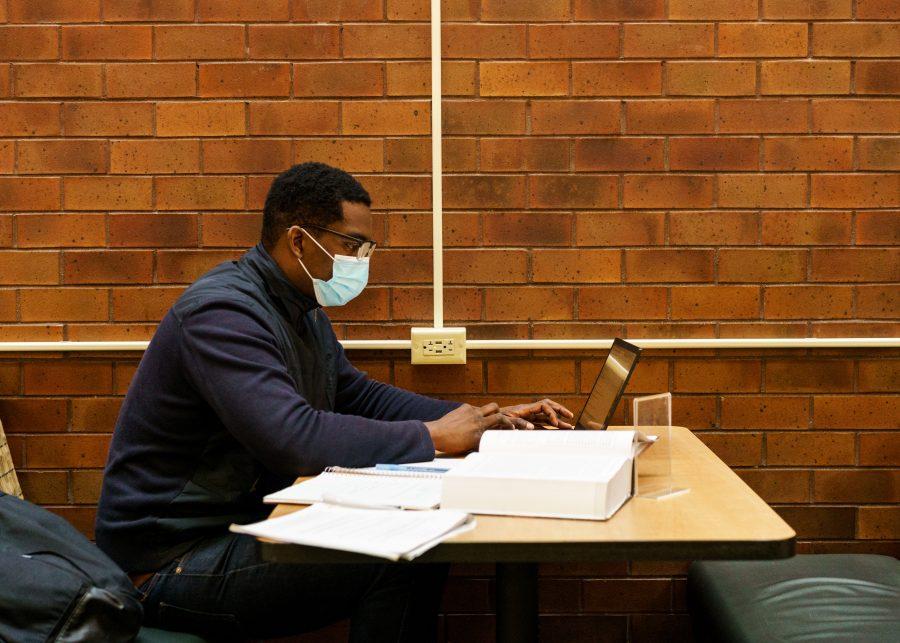Being inundated with an intense workload, suffering from homesickness and trying to maintain a social circle are just a few of the plethora of extreme activities that college students go through. In this multicultural and technologically savvy era, it can be very grueling to prioritize one’s mental health when there is so much to keep up with. Whether it be academics or extracurriculars, there is a ton of pressure to stay on top of everything. Moreover, considering the high ratio of international students at UMass Boston, and its diversity in general, it is safe to say that struggling to settle down in a new place can trigger overwhelming feelings for most of our peers.
As someone who has been managing their anxiety for a few years now, I would like to get across a few thoughts that could be insightful. Primarily, it is essential to accept that you are suffering emotionally. People may claim that mental health issues are merely a charade, but that is indubitably false. The fact is, it is a situation where you genuinely feel helpless, and it is an immense struggle to work through.
Managing symptoms your own way is paramount. Whether you prefer to see a therapist or use grounding techniques is entirely an individual choice; everyone is built uniquely. Teenagers may opt to not seek guidance from an experienced professional because it could potentially cause a hindrance to their social status. Failing to seek guidance can lead to massive consequences and intrusions in students’ education and personal life. It is pertinent to ask for help at an early stage in order to avoid relentless repercussions.
Following a routine, meditating regularly and maintaining an adequate sleep schedule are just a few ways to overcome any potential barriers to enhanced mental health. Ultimately, the struggle becomes more manageable. Apart from anxiety, there are a multitude of other problems relative to mental health, including obsessive-compulsive disorder, bipolar disorder, schizophrenia and numerous others. The American Institute of Stress Statistics notes that 73 percent of people who are under stress have poor mental health. This strongly suggests that stress negatively impacts college students—hard working individuals at turning points in their life. This vulnerability could severely affect their ability to bounce back after undergoing such dire emotional straits.
The most heartbreaking part of facing such massive levels of emotional distress, though, is being shamed and victimized for being courageous enough to face this onerous challenge. It can undoubtedly destroy one’s confidence and drive to get better. Aspects like social stigma and bullying make having mental health issues practically unacceptable in so many cultures all across the globe, even in the modern era. For instance, in certain regions of Southeast Asia, having a mental health disorder makes you a ‘disgrace’ in society, and it is likely that you will be marginalized and ostracized. In my personal experience, the most arduous obstacle was feeling embarrassed of possessing this exhausting diagnosis, which was no fault of mine.
It is saddening to witness that, regardless of the incessant modernization in our society, mental health is not given the importance it deserves, and it is demeaned instead. Stigmatization of this kind results in people not seeking help and drowning in their problems, which can be prevented by seeking help before complications increase. Fortunately, I can say with utmost confidence that slowly but surely things are changing.
Luckily for us, there are myriad resources right on campus that can aid us in assuaging emotional distress. University Health Services at UMass Boston employ multiple specialized individuals who are always available to meticulously assist anyone who needs it. Ranging from emergency crisis counseling to systematic appointments, they offer any and all services designed to alleviate impediments to a student’s obstacle-free recovery.
Mental health is paramount. It is vital to address and attempt to resolve any problems that may obliterate stability, tranquility and self care from one’s life. As aptly put by Jessica Davis from Netflix’s “Thirteen Reasons Why:” “We all want to be strong. We all want to be the kind of people who deserve good friends. But I guess, at the end of the day, none of us are as strong as we want to be. Sometimes, things just happen to you, you cannot help it. But it’s what you do next that counts—not what happens, but what you decide to do about it.”





















































